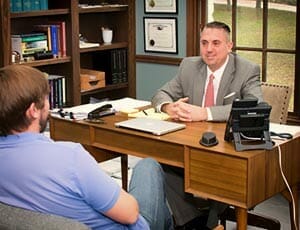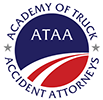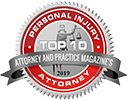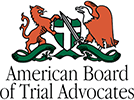Texas Unsecured Loads Lawyer
An estimated 15.5 million commercial trucks travel throughout the United States every year, carrying loads that include liquids, solids, and even live animals. For the most part, these trucks deliver their cargo safely. But when loads aren’t properly secured, the consequences can be disastrous.
Unsecured loads can cause a truck’s weight to shift unexpectedly, raising the risk of a rollover crash. Loose cargo can also spill onto roadways. When a commercial truck rolls over or its load breaks free, other motorists may be unable to avoid a crash.
If you’ve suffered a vehicle accident injury, and you believe an unsecured load was the cause of the crash, you could be entitled to compensation. Contact the EVANS / DESHAZO / REILLEY Law Firm to ask for a free case consultation: 1-855-414-1012.
Unsafe Trucks
The Commercial Vehicle Safety Alliance conducts an annual three-day enforcement called International Roadcheck, inspecting U.S., Mexican, and Canadian commercial trucks and buses at points throughout the United States and Canada. Each year, the CVSA also picks a specific safety focus. In June 2017, that focus was cargo securement.
The CVSA conducts three types of inspection: Levels I, II, and III, with Level I being the most thorough. Of the 40,944 vehicles that received Level-I inspections, 23 percent were placed out of service (OOS), meaning inspectors deemed those vehicles too dangerous to be on the road. And of those vehicles, about 1,500 were placed OOS due to cargo securement violations.
The types of specific securement violations cited were:
- No or improper load securement
- Failure to secure vehicle equipment
- Leaking, spilling, blowing, falling cargo
- Insufficient tiedowns to prevent forward movement
- Failure to secure load.
Determining Liability
In October 2015, a California bicyclist was killed by a cargo container that fell from a flatbed truck. A witness said the cargo container clipped the underside of an overpass and broke free from the truck.
A spokesperson for the Teamsters union said that companies had been hiring non-union truckers and paying them by the load, which results in drivers taking risks and cutting corners, so they can take on more work. She also told the Los Angeles Times that the cargo container had been secured only with straps, instead of a chassis that locks cargo down, which is the industry standard.
This tragic case illustrates the fact that drivers are accountable for their errors in judgment. But companies who employ negligent drivers, or who fail to mandate procedures for the safe transport of cargo, may also share some liability should a serious accident occur.
Rollover Crashes
In May 2017, a flatbed truck was making a turn in Cedar Park, Texas, when the concrete barrier it was carrying fell off. No one was injured, and police cited the driver for failing to secure his load.
In 2008, the Association for the Advancement of Automotive Medicine published an analysis of commercial truck rollover crashes. Using data from the Federal Motor Carrier Safety Administration’s Large Truck Causation Study, researchers found that of 239 rollover crashes, 26 occurred due to loads that were too heavy, improperly secured, or mounted too high in the truck. In 18 of those 26 crashes, driver error was also a factor. Those crashes may have been avoidable, had drivers slowed down when changing lanes or when driving on ramps and curves.
Help for Injury Victims
Truck drivers and their employers must ensure that cargo is transported safely. And many do. But some people in the trucking industry are more concerned with profits than safety, and they may ignore federal load-securement laws if they think it will save them time or money.
Large trucking companies usually have teams of attorneys whose only goal is to protect the company’s interests. That’s why people who have been injured in a crash with a commercial truck need an experienced personal injury attorney on their side.
If an unsecured load was the cause of your crash and injuries, contact the EVANS / DESHAZO / REILLEY Law Firm online, or at 1-855-414-1012, to request your free case consultation.

 Serving Clients Throughout Texas
Serving Clients Throughout Texas



 Chip Evans is a partner at Evans & Herlihy. Chip brings to the firm more than 20 years of experience as a trial lawyer representing Plaintiffs. It is the desire to help individuals, not corporations, that attracts Chip to this side of the docket. [
Chip Evans is a partner at Evans & Herlihy. Chip brings to the firm more than 20 years of experience as a trial lawyer representing Plaintiffs. It is the desire to help individuals, not corporations, that attracts Chip to this side of the docket. [ 







